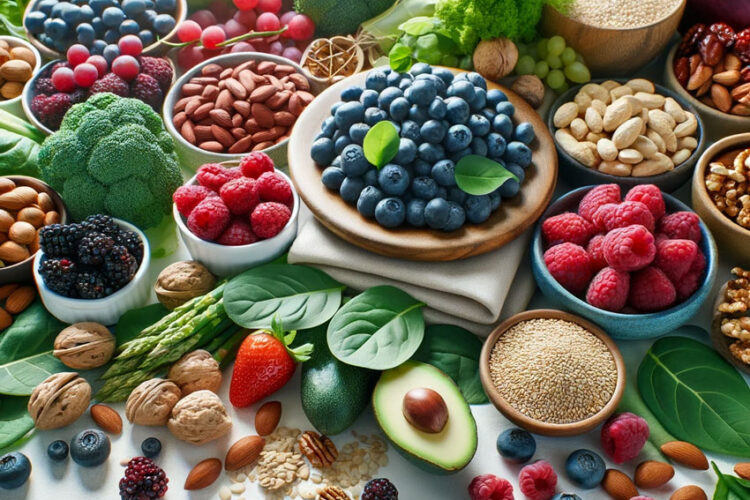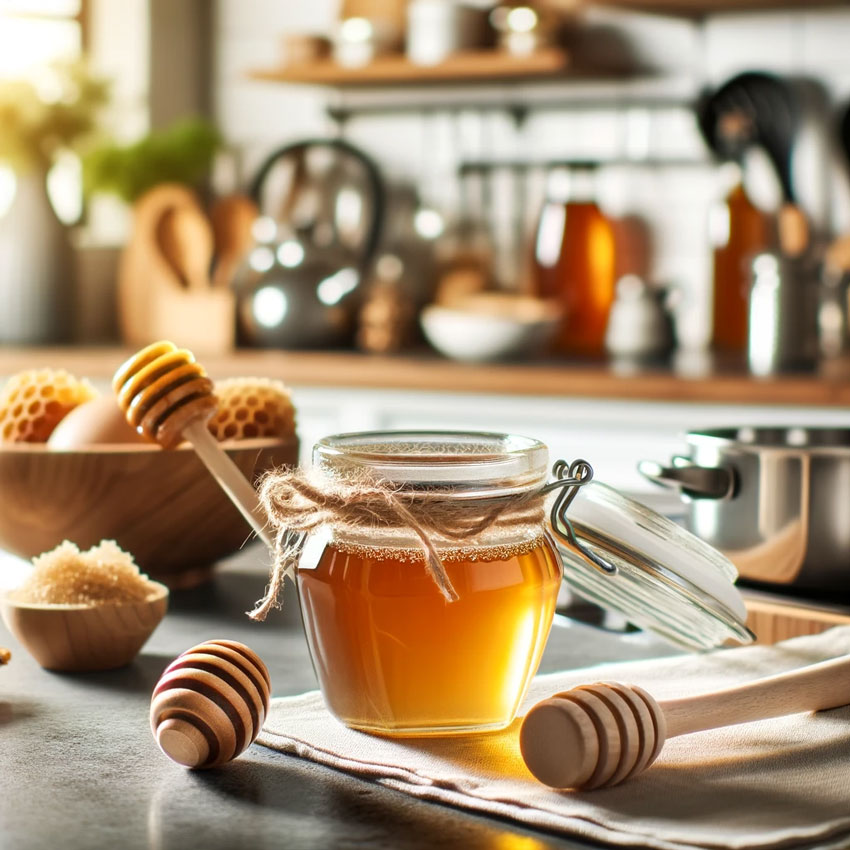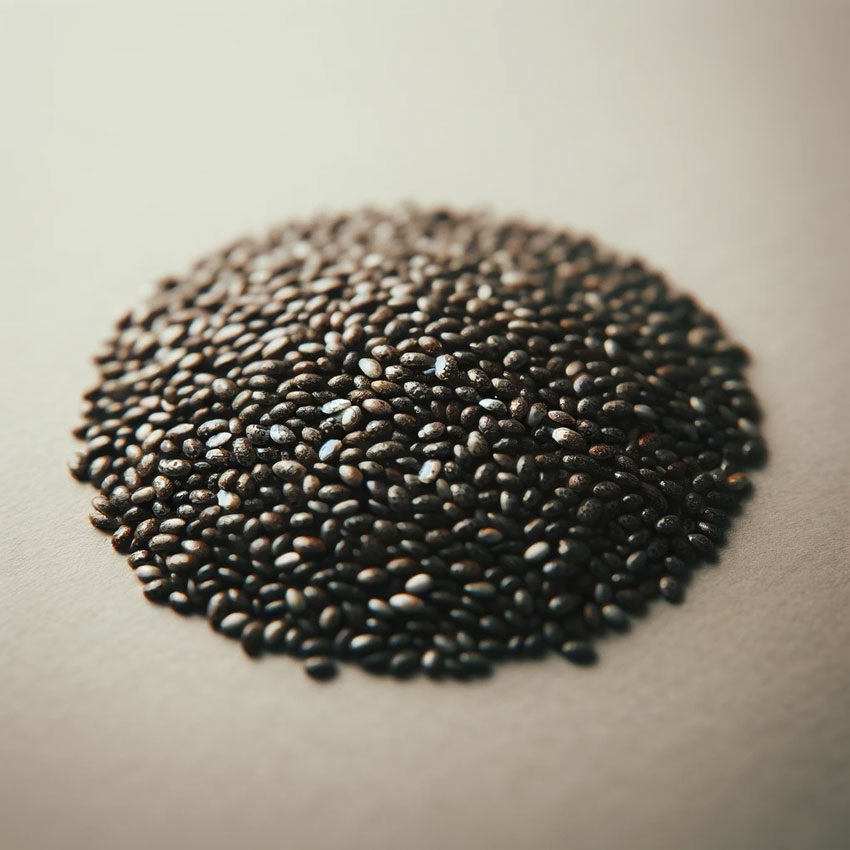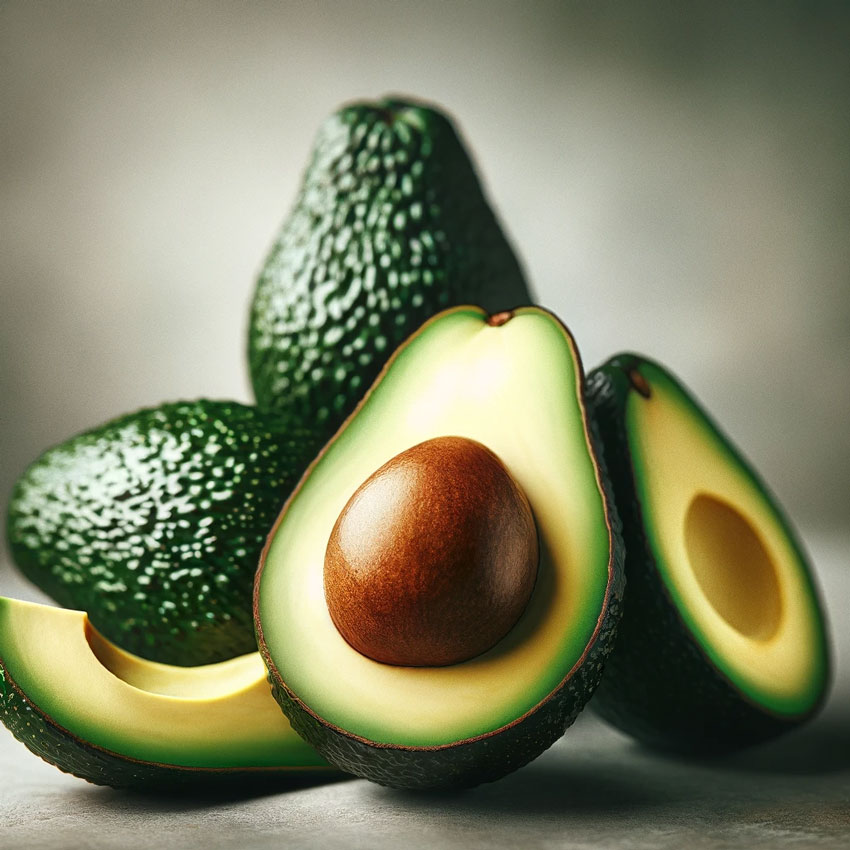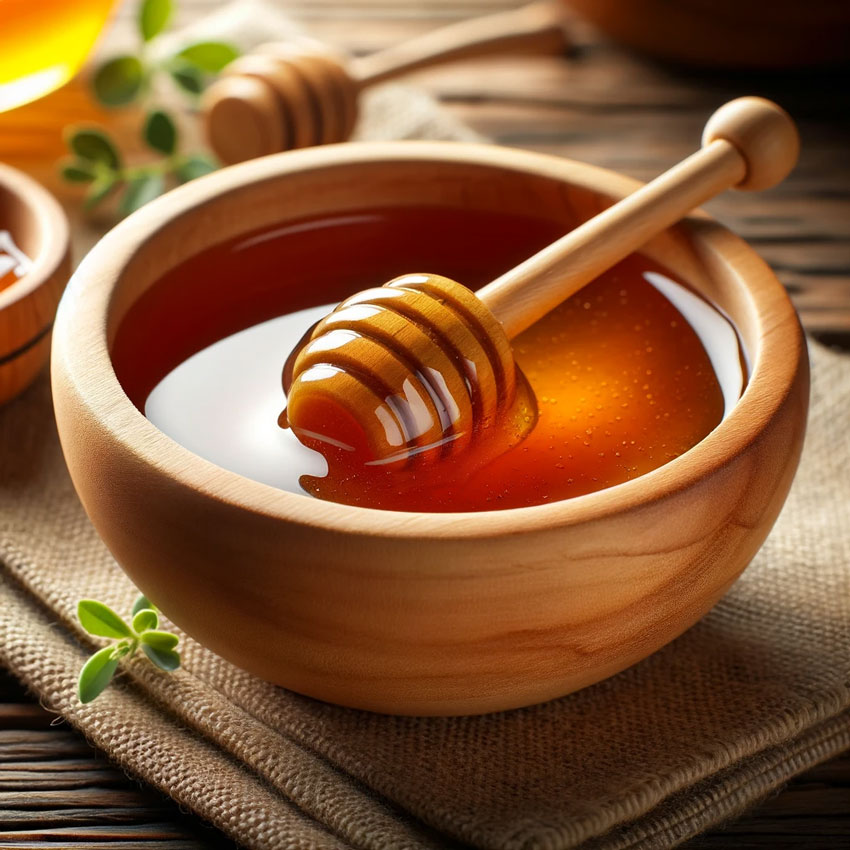Manuka honey has been touted as a superfood for its numerous health benefits, including treating allergies, colds, flu, gingivitis, sore throats, staph infections, and various types of wounds. However, it is not the only superfood available in the market. There are several other superfoods that can be incorporated into one’s diet for overall health and well-being.
Key Takeaways
- Manuka honey is a potent superfood with antibacterial properties.
- Superfoods are nutrient-dense foods that can provide a variety of health benefits.
- A balanced diet that includes a variety of nutrient-dense foods is essential for optimal health.
Understanding Manuka Honey
Origins of Manuka Honey
Manuka honey is a unique type of honey that is produced in New Zealand and Australia. It is made by bees that collect nectar from the flowers of the Manuka tree, which is native to these regions. The honey has a distinct flavor and aroma and is known for its antibacterial properties.
The production of Manuka honey is different from that of regular honey. Bees gather nectar from Manuka flowers, which are then transformed into honey within the beehives. The honey is then harvested and processed for consumption.
Health Benefits of Manuka Honey
Manuka honey has been used for centuries for its medicinal properties. It is known for its antibacterial, anti-inflammatory, and antioxidant properties. Here are some of the health benefits of Manuka honey:
- Wound Healing: Manuka honey has been found to be effective in treating wounds, burns, and ulcers. It helps to promote healing and prevent infection.
- Sore Throat Relief: Manuka honey can be used to soothe a sore throat. Its antibacterial properties help to kill the bacteria that cause sore throats.
- Digestive Health: Manuka honey can help to improve digestive health. It has been found to be effective in treating conditions such as acid reflux, gastritis, and stomach ulcers.
- Immune System Support: Manuka honey can help to boost the immune system. Its antioxidant properties help to protect the body against free radicals, which can damage cells and lead to illness.
Exploring Superfoods
Definition of Superfoods
Superfoods are nutrient-rich foods that are considered to be particularly beneficial for health and well-being. These foods are often high in antioxidants, vitamins, minerals, and other essential nutrients that are important for maintaining good health. Superfoods can help reduce the risk of chronic diseases, boost the immune system, and improve overall health.
Popular Types of Superfoods
There are many different types of superfoods, each with its own unique set of health benefits. Some of the most popular types of superfoods include:
- Berries: Berries like blueberries, raspberries, and strawberries are high in antioxidants and can help reduce the risk of heart disease and cancer.
- Leafy greens: Leafy greens like kale, spinach, and collard greens are high in vitamins and minerals and can help reduce the risk of chronic diseases like cancer and diabetes.
- Nuts and seeds: Nuts and seeds like almonds, walnuts, and chia seeds are high in healthy fats, protein, and fiber and can help reduce the risk of heart disease and improve digestive health.
- Whole grains: Whole grains like quinoa, brown rice, and oats are high in fiber and can help reduce the risk of heart disease and improve digestive health.
- Fish: Fatty fish like salmon and tuna are high in omega-3 fatty acids and can help reduce the risk of heart disease and improve brain function.
Manuka honey is also considered a superfood due to its unique properties and health benefits. It has been shown to have antimicrobial and wound-healing properties, making it a popular natural remedy for a variety of health issues. However, it is important to note that more research is needed to fully understand the health benefits of Manuka honey and to determine its effectiveness as a superfood.
Manuka Honey vs Superfoods
Nutritional Comparison
Manuka honey is a natural sweetener that contains vitamins, minerals, and antioxidants. It is also known for its antibacterial properties, making it a popular choice for treating wounds and sore throats.
When compared to other superfoods, Manuka honey stands out for its unique properties. It contains a high level of methylglyoxal (MGO), which is responsible for its antibacterial activity. However, it’s important to note that Manuka honey is still a sweetener and should be consumed in moderation.
Price Comparison
Manuka honey is more expensive than regular honey and other superfoods. This is due to the limited supply and high demand for Manuka honey. The price of Manuka honey can vary depending on the level of MGO, with higher levels of MGO being more expensive.
When compared to other superfoods, Manuka honey is on the higher end of the price spectrum. However, it’s important to consider the unique properties and potential health benefits of Manuka honey when making purchasing decisions.
Incorporating Manuka Honey and Superfoods into Your Diet
Easy Recipes
Incorporating Manuka Honey and other superfoods into your diet can be easy and delicious. Here are some simple recipes to get you started:
- Manuka Honey Yogurt Parfait: Layer Greek yogurt, fresh berries, and a drizzle of Manuka honey for a nutritious and satisfying breakfast or snack.
- Superfood Smoothie: Blend together spinach, kale, frozen berries, almond milk, and a scoop of your favorite superfood powder for a nutrient-packed smoothie.
- Honey Glazed Salmon: Brush salmon fillets with a mixture of Manuka honey, soy sauce, and garlic before baking for a sweet and savory dinner option.
Potential Side Effects
While incorporating Manuka Honey and other superfoods into your diet can have many health benefits, it is important to be aware of potential side effects. Some people may experience allergic reactions to certain superfoods, such as bee pollen or spirulina. Additionally, consuming too much Manuka Honey can lead to digestive issues or an increase in blood sugar levels.
As with any dietary change, it is important to consult with a healthcare professional before making significant changes to your diet.
Conclusion
In conclusion, Manuka honey is a unique superfood that has been proven to have significant antimicrobial and wound-healing properties. Its unique traits and a broad range of applications, including food, cosmetics, and nutraceuticals, have marked up its price 6 to 25 times more than other honey types.
However, it is important to note that Manuka honey is not the only superfood available. There are other superfoods such as blueberries, kale, and salmon that are also packed with nutrients and health benefits. It is important to have a balanced diet that includes a variety of superfoods to ensure optimal health.
When comparing Manuka honey to other superfoods, it is important to consider factors such as taste, availability, and cost. While Manuka honey may be more expensive than other jars of honey, it is important to consider its unique properties and potential health benefits when making a purchasing decision.

